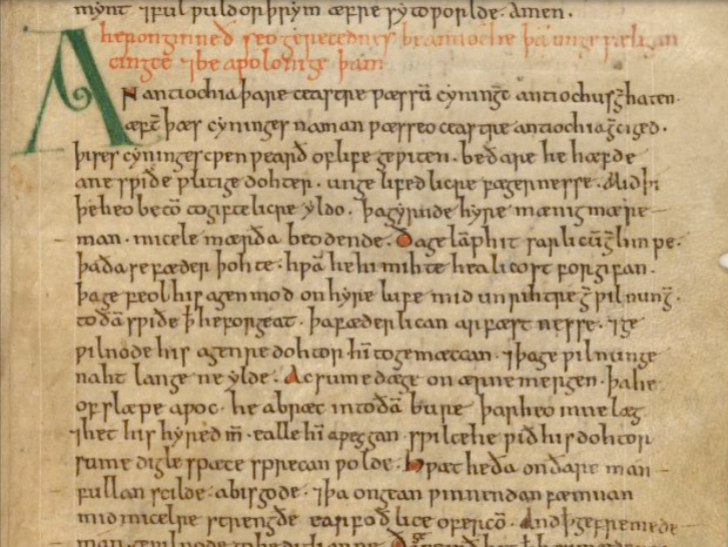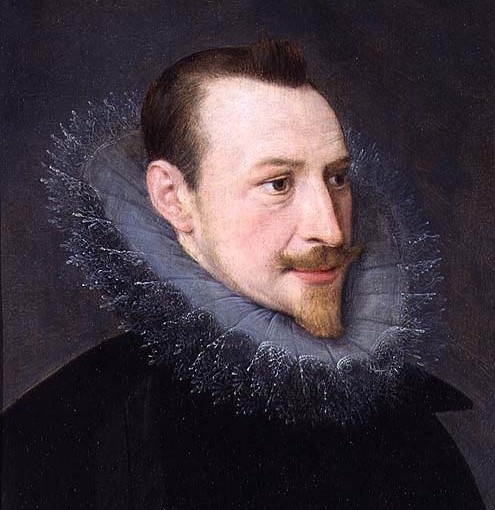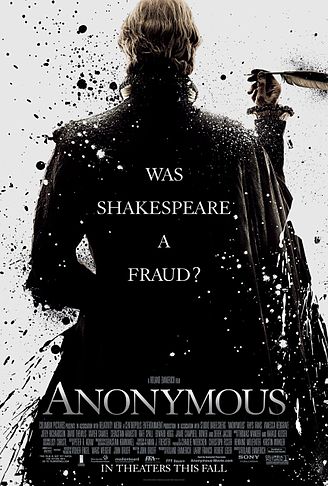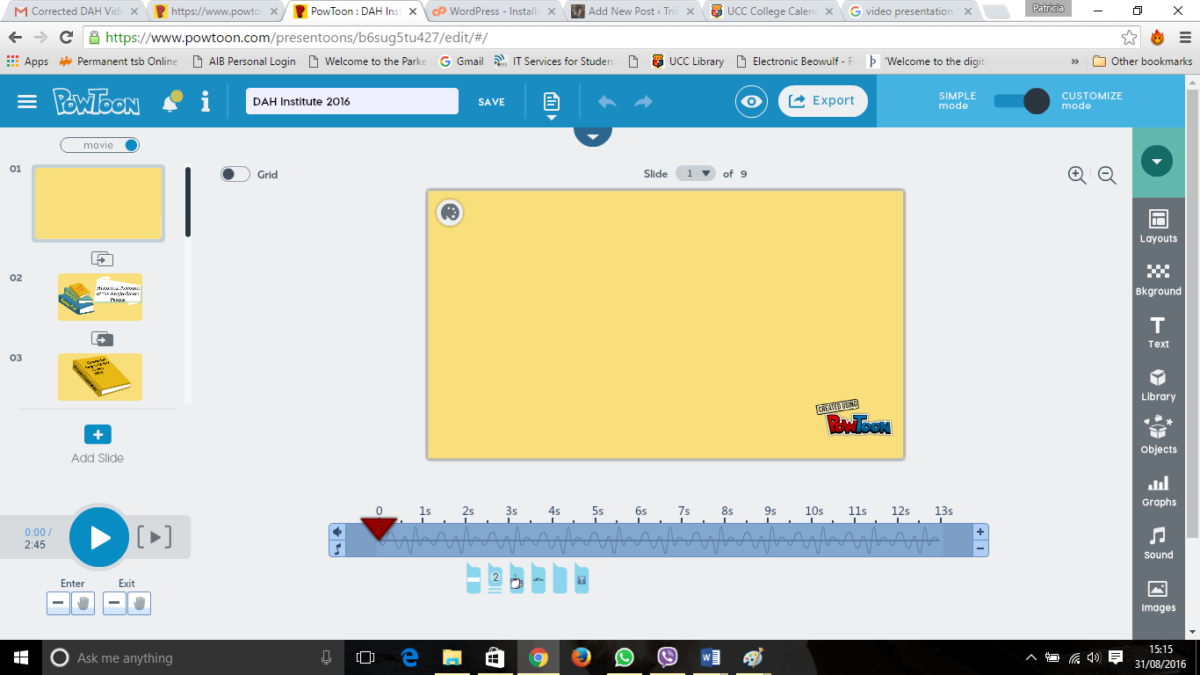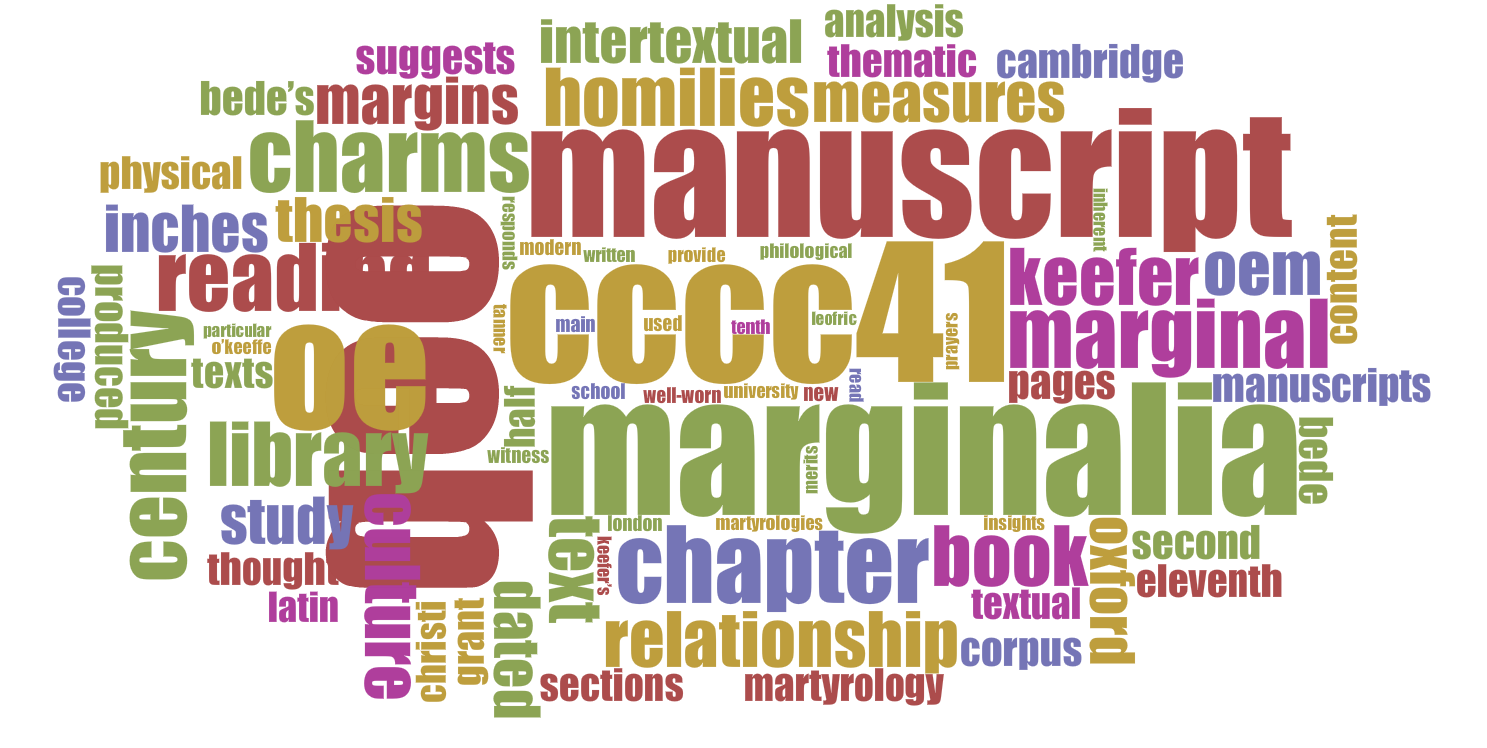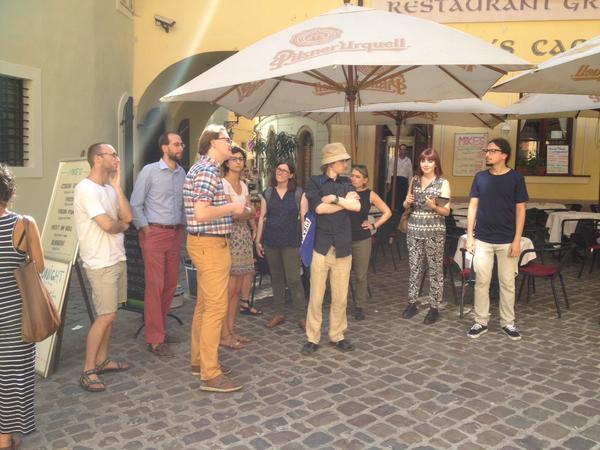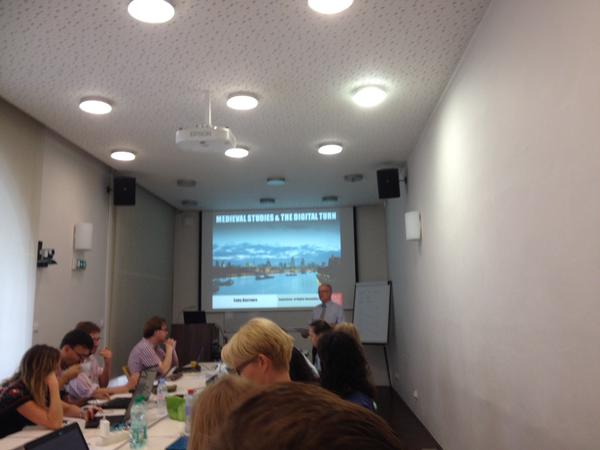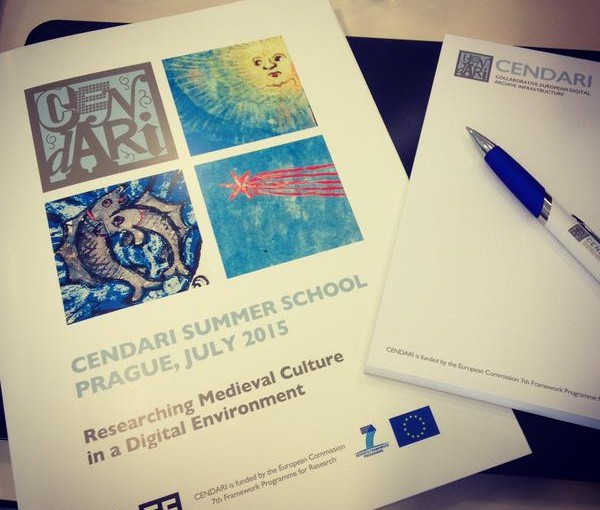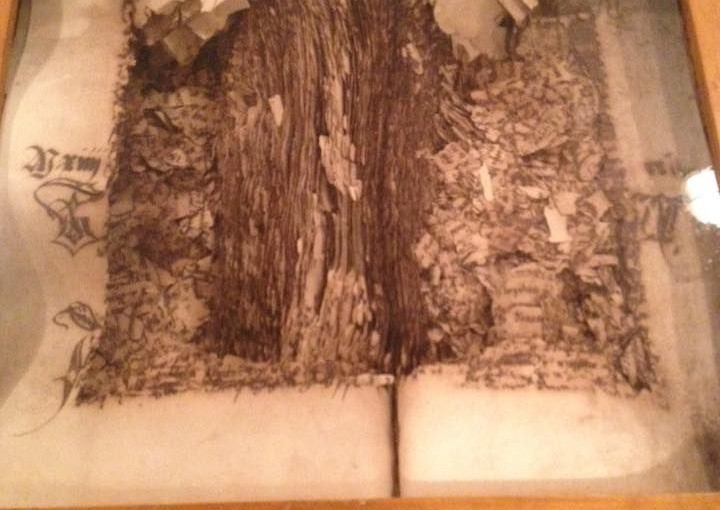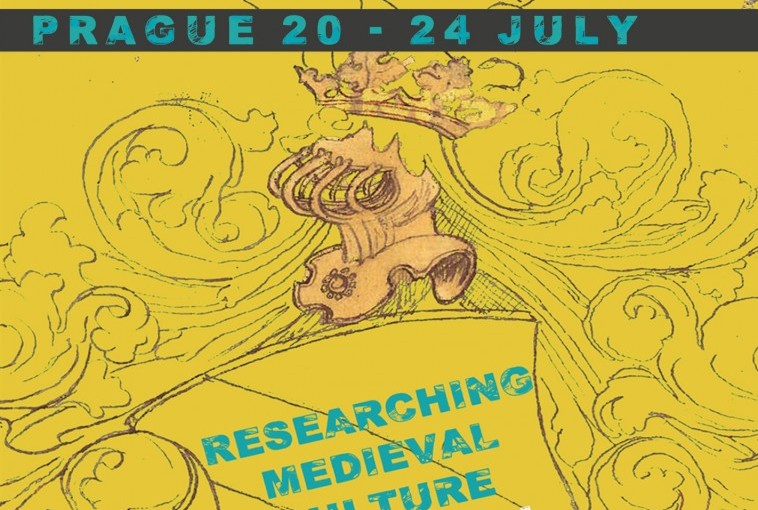Introduction The prosaic Old English Apollonius of Tyre occurs in the manuscript Cambridge Corpus Christi College 201(CCCC201). This single manuscript is predominantly comprised of religious, secular, poetic material, and the inclusion of Apollonius in this context has occasioned a considerable degree of confusion in relation to its genre classification, and the rationale behind...
Patricia O Connor
My name is Patricia O Connor. I have a BA in History and Archaeology and a Higher Diploma in English Literature from University College Cork. I have recently graduated from the postgraduate Masters course "Texts and Contexts: Medieval to Renaissance Literature" and am currently pursuing my research in Old English Literature as a PhD candidate within the "Digital Arts and Humanities" course offered by University College Cork. My research topic is a continuation of my Masters research which focused on reconciling the Old English marginalia within a particular manuscript witness of the Old English Bede; Cambridge, Corpus Christi College 41. I will be using this blog as a means to actively encourage my interest in Old English and the Digital Humanities and to develop potential research avenues.
“The bankes are overflowen, when stopped is the flood.” Temperance in “The Faerie Queene”.
A recent review of my blog brought to my attention that I am sorely lacking in Renaissance material. Throughout my Higher Diploma I had somehow managed to circumvent studying Renaissance literature and it wasn’t until this term that I could consider myself formally introduced to the subject. Fortunately this...
Emmerich’s Reimagining of Elizabeth I in “Anonymous”.
Dr Edel Semple’s research seminar entitled “The Writer, The Queen, and The Director: Shakespeare, Elizabeth I and Emmerich’s Anonymous.” examined Emmerich’s appropriation of the world’s most famous playwright and female monarch. Dr Semple’s thorough analysis of Emmerich’s appropriation of Elizabeth I inspired this blog post because it provided a fascinating contrast...
Video Presentation Software – PowToon Review
The Digital Humanities Institute is an annual intensive seminar that gathers together the Digital Art and Humanities cohort to discuss various theoretical, methodological and research practices. This year the Institute is being hosted by my home university, University College Cork, on Saturday September 17th, 2016. The seminar provides a forum...
Word Cloud Visualisation Tools
Perhaps one of the principal advantages afforded by the integration of emerging technologies with humanities research has been the ability to visualise research findings in new and innovative ways. Visualisation tools, many of which are available freely online, provide the opportunity to revolutionise how we visualise humanities research and challenge how we choose to present...
CENDARI Summer School Day Five: CENDARI and Final Discussions
The final day of the CENDARI summer school perpetuated the concept of interoperability that was introduced by Dr Toby Burrow’s paper the previous day. Emiliano Degl’Innocenti described the current situation of today’s medieval digital ecosystem as being fragmented or “full of walled gardens”. Emiliano’s description recalled the closed nature of traditional research methods;...
CENDARI Summer School Day Four: The Classical Text Editor, Virtual Research Environment and Dr Toby Burrows.
The fourth day of the CENDARI summer school started with a practical session led by Libor Svanda using the Classical Text Editor. The Classical Text Editor was one of the main tools that I was looking forward to learning how to use at CENDARI as I hoping to producing...
CENDARI Summer School Day Three: Abbreviationes and the CENDARI Virtual Research Environment
Day three began with an introduction to Abbreviationes, an easy to use and free online database of medieval Latin abbreviations. We were fortunate enough to have the database creator Olaf Pluta present to guide the CENDARI Summer school participants as we experimented with both versions of Abbreviationes, Abbreviationes Classic...
CENDARI Summer School Day Two: Manuscriptorium and the National Archives of the Czech Republic
The second day of the CENDARI summer school resumed with Zdenek Uhlir, the project manager of Manuscriptorium, a free online digital library of historical resources from a number of important European institutions. The principal advantage of Manuscriptorium is that it allows researchers free access to a diverse range of...
CENDARI Summer School Day One: XML, TEI, T-Pen and Tradamus.
The CENDARI summer school commenced with an introduction to the CENDARI project and a general discussion of the burgeoning trend in digitisation by Jakub Benes. The morning’s discussion highlighted important concerns that would resurface throughout the week, namely who decides what gets digitised and more worryingly, how our decision...
